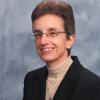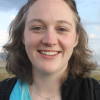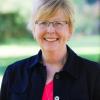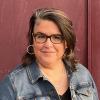"The sick were very dear to the heart of Jesus Christ. As Catholics, we follow in his footsteps to continue this healing ministry. We also put a special emphasis on treating people with dignity. We want to give that respect to each patient."
"Why do we expect change to happen rapidly? We don’t really know the outcomes. May we have the snail’s patience."
Thirty Catholic organizations and institutes, including three women religious orders, filed a joint amicus brief with other faith groups in support of the Clean Power Plan, the basis of the U.S. commitment to an international pact to address climate change.
Speaking of God - The results of the recent U.S. presidential primaries are not only startling, but a wake-up call to the reality that our political system no longer works.
This week, Global Sisters Report has focused on the prison system in the U.S. and the issues. Today, we republish Part 1 of the series, which focuses on mass incarceration and the racism behind it. The package of stories, photos and graphics includes links to the three other parts, which focus on sisters who minister to inmates, help with release programs and advocate for change.
GSR Today - Nearly half of the United States is made up of dioceses that are classified as mission territory, or "home missions," meaning they "lack the resources to provide basic pastoral ministry to their populations."
For years, I've taken something on for Lent — a work of mercy, a good deed, a practice or a devotion. This year, I did something I haven't done in a very long time: I gave something up.
From A Nun's Life podcasts - In this Random Nun Clip, we talk with the Franciscan Sisters of Perpetual Adoration about 130-plus years of perpetual adoration!
"We need to respect and care for a person even though we disagree with their ideas, so when we're working on forgiveness work, we make a careful distinction between what a person does that is harmful and the dignity of the person herself."
"They can call it whatever they want, but it's a jail. There's no reason to be locked up. What bothers me most is that this is being done under the private prisons, so they are making money on the backs of these poor moms and kids, which is just wrong."
- Related: Read our roundtable discussion with sisters working in immigration ministry








